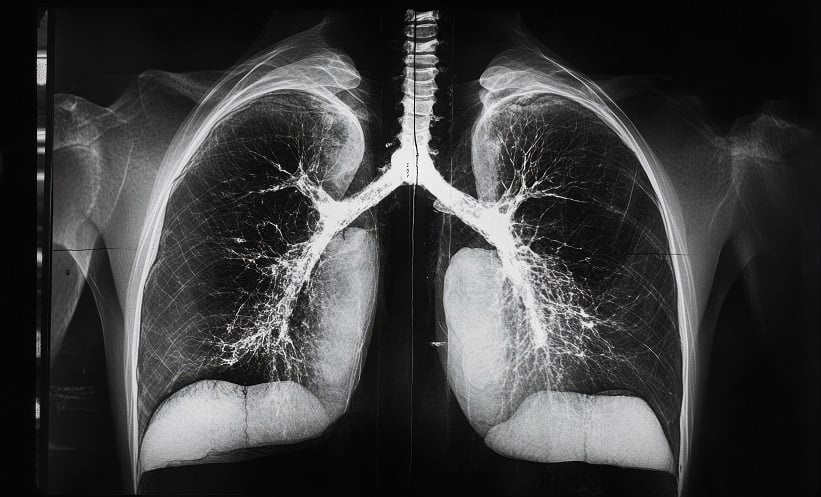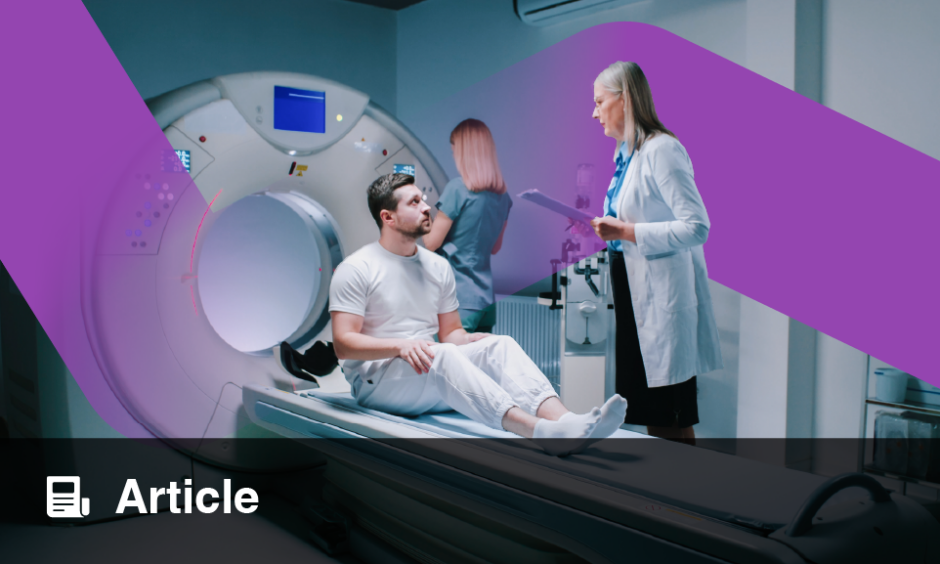A RECENT study suggested that deep learning–derived respiratory metrics obtained from chest CT scans may provide valuable prognostic information for patients with amyotrophic lateral sclerosis (ALS), particularly those who struggle with conventional respiratory testing due to bulbar dysfunction. Forced vital capacity (FVC) has long been a standard for evaluating respiratory function in ALS but poses limitations in specific patient populations. In this context, imaging-based parameters offer a potentially reliable alternative. Crucially, this study found that CT-derived metrics were as accurate as FVC in predicting survival in ALS.
The retrospective study assessed 261 patients diagnosed with ALS between January 2010 and July 2023 at a tertiary hospital, all of whom underwent chest CT. Using deep learning software, the researchers measured lung volume and respiratory muscle volume, normalised for patient height, resulting in the lung volume index (LVI) and respiratory muscle index (RMI). These were compared across King clinical stages using ordinal logistic regression. Survival, defined as tracheostomy-free survival, was evaluated using Cox regression and time-dependent ROC curve analysis. A subgroup analysis included patients with bulbar impairment. Additionally, the team developed a Gaussian process regressor model to estimate FVC using CT-derived variables alongside age and sex.
Results showed that both LVI and RMI declined with advancing ALS stage (p<0.001). Patients with higher LVI and RMI values had significantly better survival outcomes (both p<0.001). After adjusting for confounders, LVI (hazard ratio [HR]: 0.998; 95% CI: 0.996–1.000; p=0.021) and RMI (HR: 0.992; 95% CI: 0.988–0.996; p<0.001) remained independent predictors of survival. Notably, this predictive strength persisted in patients with bulbar impairment. In survival prediction, there was no significant difference between LVI, RMI, and FVC. The model for estimating FVC from CT metrics had a margin of error of approximately 8%.
This study highlights the clinical value of deep learning–based CT metrics in ALS, particularly for patients who cannot reliably perform spirometry. While the retrospective design and reliance on single-centre data may limit generalisability, the findings support the integration of LVI and RMI into routine assessment, potentially improving prognostication and guiding therapeutic decisions in complex cases.
Reference
Choi SJ et al. Association of Deep Learning–based Chest CT–derived Respiratory Parameters with Disease Progression in Amyotrophic Lateral Sclerosis. Radiology. 2025;DOI: 10.1148/radiol.243463.








